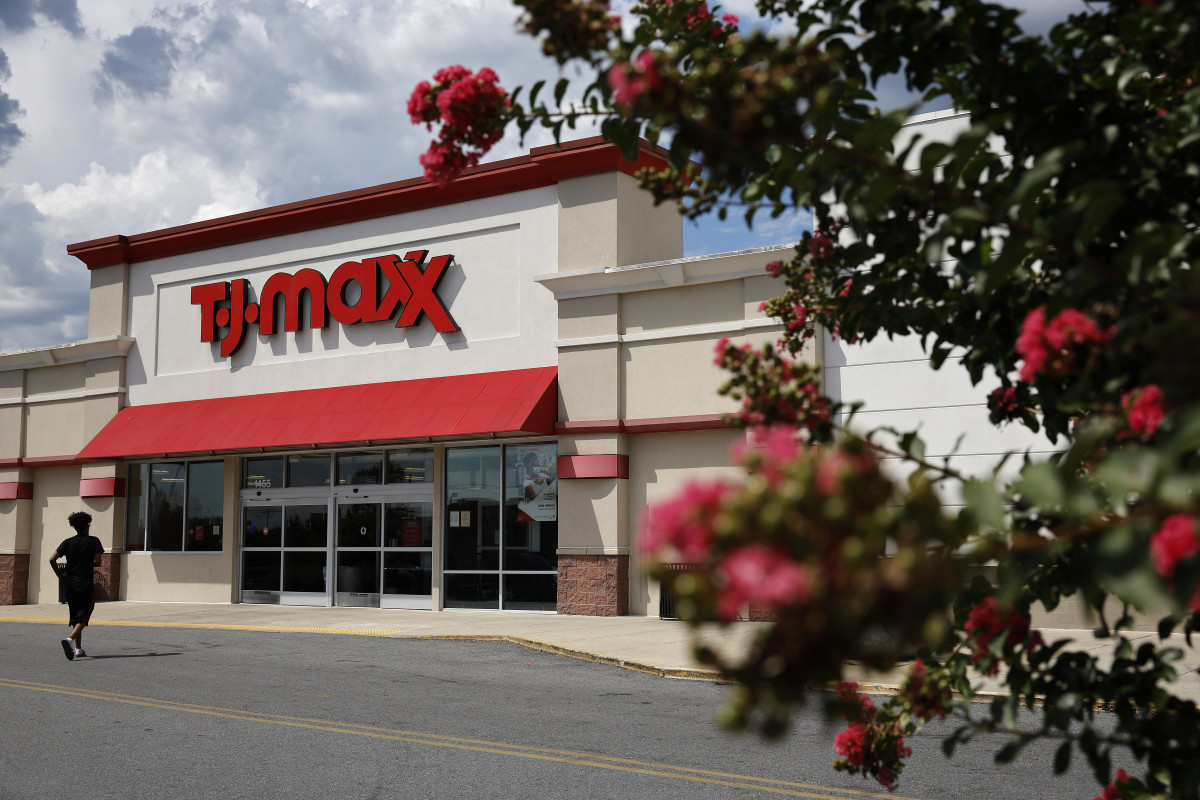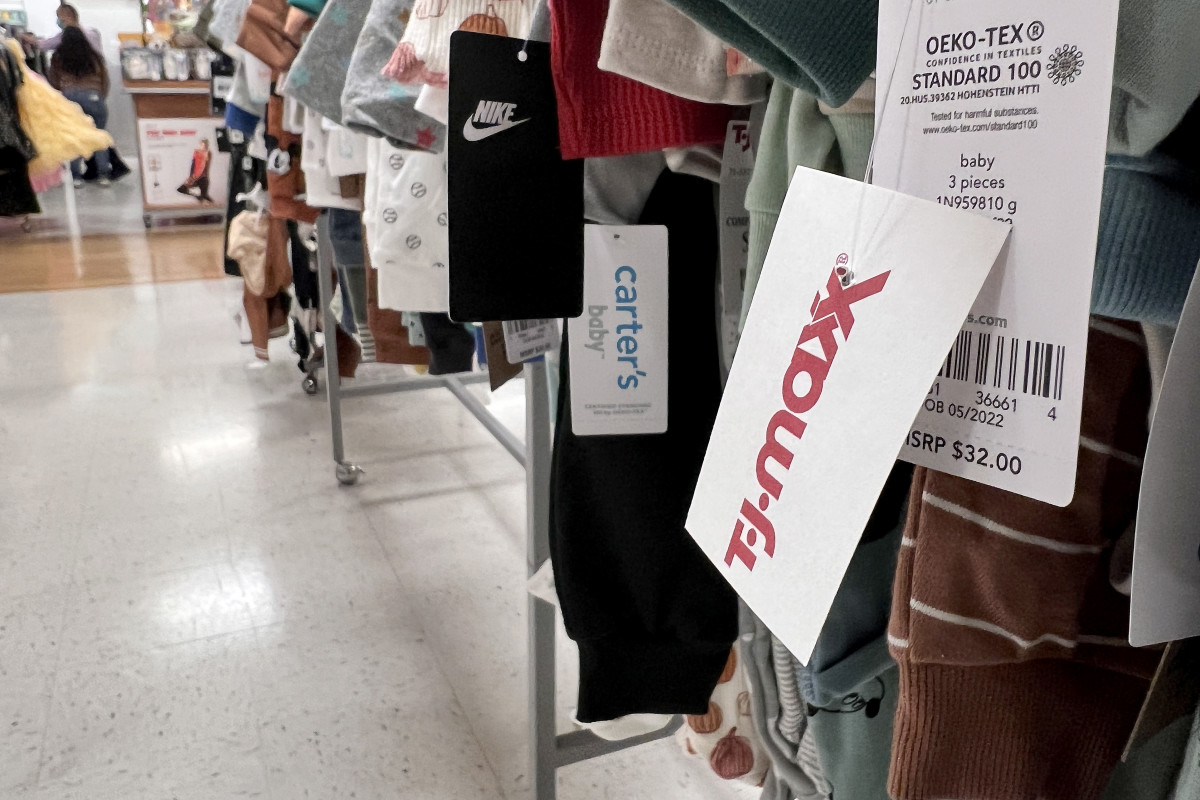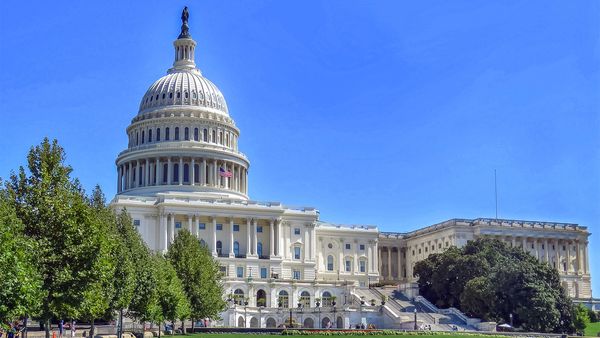
If you've paid attention to the landscape of some of your most frequented shopping plazas, you've probably noticed some big changes.
For instance, many new parking spaces have been reserved for drive-in-and-pickup customers, who prefer to procure their goods and groceries without the hassle of shopping themselves. Other changes might include new self-checkout kiosks, store-within-store models, and the return of your favorite grocery store food samples.
Related: TJ Maxx and Marshalls follow Costco and Target on upcoming closures
You may have also noticed the sudden upcropping of some new stores. Every town and plaza seems to be getting a shiny new TJ Maxx, Marshalls or HomeGoods — all owned by TJX Cos. (TJX) — a new Ross (ROST) or a new Burlington (BURL) .
And chances are these stores are replacing legacy retailers like a Barnes and Noble (BKS) or a Joann crafts store (JOAN) .
The popularity of stores like TJX's retailers and other discount stores didn't happen overnight, though their rising popularity seems to somehow defy modern retail logic.
With scant online presences — shopping online at, say, TJ Maxx's website often proves fruitless — stores like Marshalls, TJ Maxx, HomeGoods, Burlington and Ross thrive instead on the treasure-hunt model, whereby each store stocks different items and customers never quite know what they might find. It's the thrill of the discovery that beckons.
In fact, many of these companies are tied to other legacy retailers that are struggling. That's because they collect branded wholesale merchandise, such as apparel, jewelry, shoes and accessories, often that were overstocked or from previous seasons, and sell them at discount from the original sticker prices.
So companies like TJ Maxx aren't in the business of clothing design or fashion; they're effectively middlemen that benefit from the breakneck pace of changing fashion trends. And that's currently a booming business, especially as legacy retailers like Macy's (M) shutter hundreds of stores.
"One indirect byproduct ... that’s happening with all the store closures is the importance to the vendor community keeps rising for our merchants amidst less brick-and-mortar competition, so to speak," TJX Chief Executive Ernie Herrman told analysts on the Q4-earnings call.

Stores may have sold goods containing lead: group
Of course, one drawback to such rapid inventory turnover can be a lack of foreknowledge about what's coming and going.
In March, the Center for Environmental Health released a report alleging that retailers including Ross, Burlington, Marshalls, TJ Maxx, and Nordstrom Rack (JWN) may have sold fast-fashion items containing "shockingly high levels of lead."
"In 2022 alone, more than 25% of the fashion accessories purchased from Ross and Burlington and tested by CEH contained elevated lead levels above 0.03% and up to 1.7%," the report alleges.
The Oakland, Calif., group says on its website that it works "with communities, consumers, workers, government, and the private sector to demand and support business practices that are safe for public health and the environment."
The study was conducted over the course of 13 years, beginning in 2009, and tested items such as handbags, belts, wallets, and shoes. Most of these accessories were made from faux leather and leather materials.
"Over the last decade, CEH has notified retailers Burlington, Marshalls, Nordstrom Rack, Ross, and TJ Maxx nearly 500 times that they were selling specific fashion accessories containing elevated levels of lead," the report continues. "Ross and Burlington accounted for over 300 of those notices."
Some of the brands that CEH alleges contained lead include:
- Mudd
- Nanette Lepore
- Daisy Fuentes
- Badgley Mishka
- Bebe
- Ellen Tracy
Retailers respond to lead allegations
Some of the retailers have since responded to CEH's claims.
“At TJX product safety is important to us, and conducting our business with integrity means everything to us," a TJ Maxx spokesperson told TheStreet.
"We take great pride in offering our customers amazing values on high-quality and brand-name products. Our merchandise vendors represent and warrant that the goods they supply to us comply with all applicable laws, regulations, and standards, including those related to lead content.
"If we are made aware of an item that may not comply with the law, we take it seriously, and take actions to look into it and take appropriate steps, as needed.”
A Burlington spokesperson said the company strives "to meet applicable regulatory mandates including threshold limits established by federal, state and local jurisdictions for restricted chemicals such as lead.
"If there is a claim in which merchandise is not in compliance, Burlington takes swift action to investigate and remedy the situation."
TheStreet has reached out to the other retailers in question for comment.
Budget retailers aren't the only ones under fire for allegations about the use of lead in products. Stanley, the company behind the viral Stanley cups, was recently accused of using lead in its popular tumblers. The company maintains the lead should never come into contact with drinking liquid.







